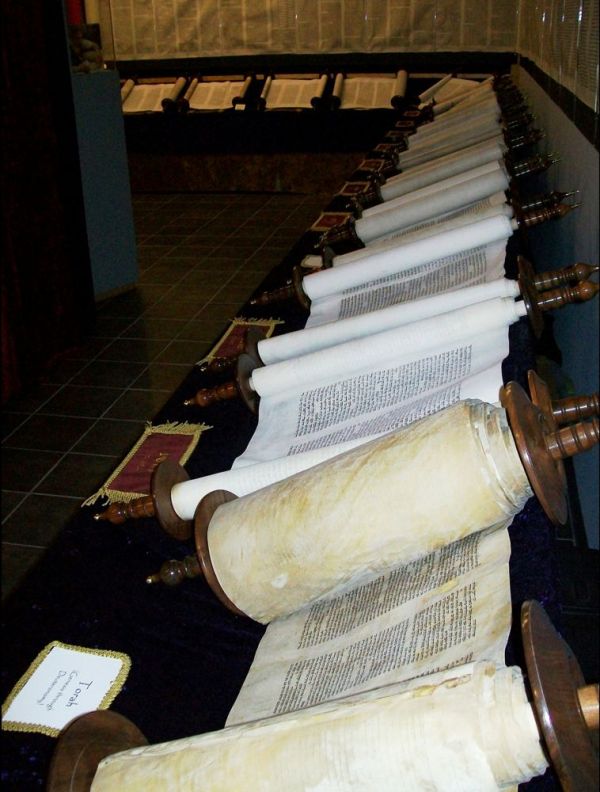22nd Sunday in Ordinary Time (year C)
(Luke 14:1-7, 14)
Luke 14:1 One Sabbath day, Jesus went to the home of one of the leading Pharisees to eat, and the people were watching him closely.
Luke 14:7 Noticing how the guests chose the places of honour, he told them a parable:
Luke 14:8 "When you are invited to a wedding, do not take the place of honour, lest someone more distinguished than you be invited and he who invited you and him say to you, 'Give him your place'.
Luke 14:9 Then you would be ashamed and would have to take the lowest place.
Luke 14:10 But when you are invited, go and sit in the last place, so that when the one who invited you comes, he may say to you, "Friend, move up to the place of honour." Then you will have honour in the presence of all who sit at the table with you.
Luke 14:11 For everyone who exalts himself will be humbled, and he who humbles himself will be exalted."
Luke 14:12 Then he said to the one who had invited him, 'When you give a dinner or a banquet, do not invite your friends or your brothers or your relatives or rich neighbours, lest they also invite you in return and you be repaid.
Luke 14:13 But when you give a banquet, invite the poor, the crippled, the lame, and the blind.
Luke 14:14 And you will be blessed, because they cannot repay you. You will be repaid at the resurrection of the righteous.”
The passage opens with a verb dear to Luke, with which the evangelist marks the unfolding of the history of salvation, linking it to an event that takes place on a Saturday in the house of one of the leaders of the Pharisees: 'Kaì egéneto' (and it came to pass). What is now being recounted, therefore, has to do with the realisation of salvation in the present day of Jesus and in the present day of the Church.
Verse 7 opens with Jesus telling a "parable" about the abusive behaviour of the guests. The story directly involves the diners and places them in a hypothetical wedding banquet where Jesus dictates rules of "good manners" to them. But Jesus' teachings are thought to go far beyond what appears to be simple rules of good social behaviour. The nature of these rules primarily concerns the guests, among whom Jesus is also present, who stands among them as their teacher, and all of whom are inside a house. These are all images that refer to the community of believers. Therefore, these exhortations are addressed to the community, urging believers to behave with helpful humility within their community, on which divine judgement weighs heavily.
The theme of humility shines through the entire New Testament and has its beginning in Jesus himself, who did not come to be served but to serve, and demonstrated this by washing the feet of his disciples shortly before his passion and death, revealing in this gesture the truest and deepest meaning of his death: a service of redemption and salvation for humanity. And it is precisely by virtue of this helpful humility that believers find their true nature in Christ, who, humbling himself in obedience unto death on the cross, paradoxically found his exaltation in this humbling of himself.
In this way, this humble and helpful attitude towards the community of believers takes on such importance that it is subject to eschatological judgement: 'For everyone who exalts himself will be humbled, and he who humbles himself will be exalted'.
After establishing the golden rule of humility, which is service within the community of believers, on which the threat of divine judgment weighs heavily, Jesus dictates a new rule, addressed to the master of the house; a metaphor, in a way, for that beautiful, wealthy world that revels in itself, exchanging favours: "Spend your money on those who cannot repay you because of their sad condition." This is pure generosity, which expects no reward, but is done solely in the name of Jesus and of the love that must bind every believer and in which the Father's love for all is reflected, regardless of personal circumstances. This is a rule that must characterise the believer's way of life and distinguish him as an authentic disciple of Jesus, on whom he is called to reorient his life. It is a rule that should not be taken as mere good advice, but is made binding by the beatitude with which the exhortation concludes: 'and you will be blessed because they have nothing to repay you. You will be rewarded at the resurrection of the righteous' (v. 14). In other words, the choice of magnanimity towards the needy has its inevitable resonance on the last day, the day of the resurrection of the righteous; and the same is true of selfish behaviour, which, although not explicitly mentioned, nevertheless shines through between the lines.
Luke makes it clear that everything we do here on earth, whether good or bad, has its final outcome. The logic of recompense for what is done here in this life also resonates in the Lord's Prayer: "Forgive us our trespasses, as we forgive those who trespass against us." Our salvation is not only at stake here on earth, in this life, but it will be determined by the way we live. A life, therefore, that must be taken extremely seriously, since the eschatological judgement, which is final, already weighs upon it.
Argentino Quintavalle, author of the books
- Apocalypse – exegetical commentary
- The Apostle Paul and the Judaizers – Law or Gospel?
Jesus Christ true God and true Man in the Trinitarian mystery
The prophetic discourse of Jesus (Matthew 24-25)
All generations will call me blessed
Catholics and Protestants in comparison – In defence of the faith
The Church and Israel according to St Paul – Romans 9-11
(Available on Amazon)


